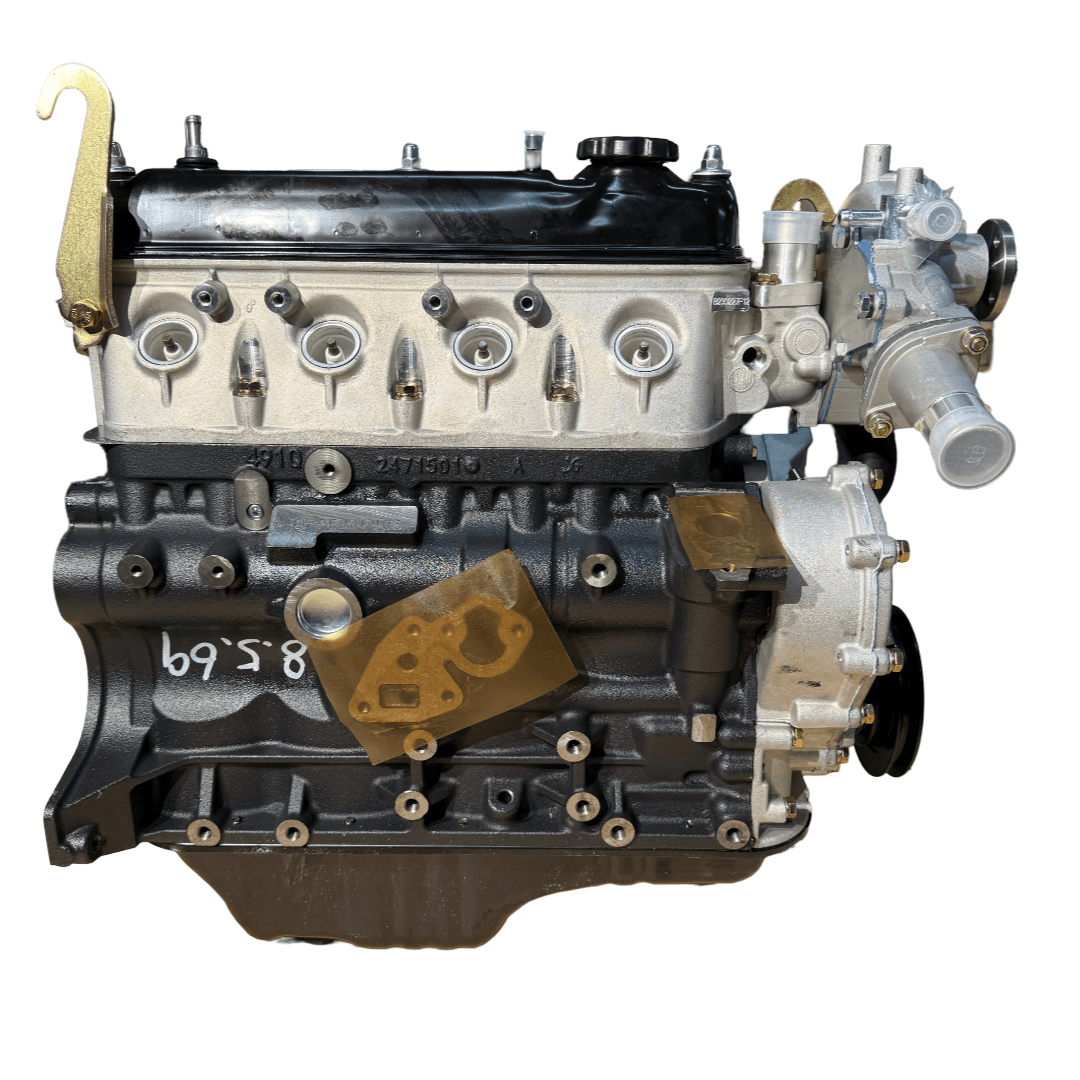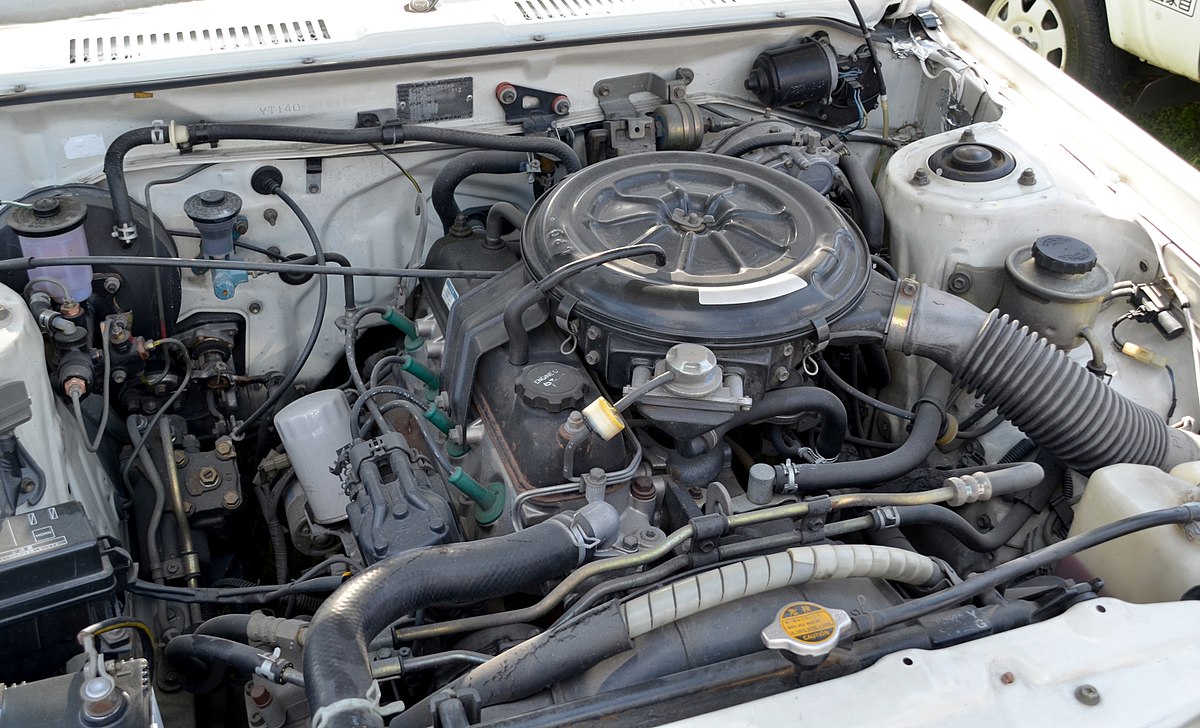Discovering the Different Sorts Of Engine: Which One Fits Your Demands?
Interior combustion engines continue to dominate due to their integrity, while electric engines are gaining grip for their sustainability. Hybrid engines provide a functional concession, and diesel engines stand out for their power in demanding applications.

Interior Combustion Engines
Interior combustion engines (ICEs) are the foundation of modern transport, powering a huge array of lorries from automobiles to planes. These engines run on the principle of transforming fuel right into mechanical energy with a series of regulated surges within a burning chamber. One of the most typical kinds of ICEs consist of gas engines, diesel engines, and rotating engines, each designed to satisfy specific performance and effectiveness needs.
Gas engines generally make use of spark ignition, while diesel motor depend on compression ignition, leading to distinct distinctions in fuel effectiveness and power outcome (4y engine). Rotating engines, or Wankel engines, offer a compact style and smooth procedure, but are less generally used in mainstream applications
ICEs have undergone considerable innovations in technology, including the intro of turbocharging and gas shot systems, which improve total performance and performance. In spite of their effectiveness renovations, ICEs face raising scrutiny because of their ecological effect, specifically regarding greenhouse gas emissions. As the auto market evolves, the future of ICEs stays a topic of dispute, stabilizing efficiency, effectiveness, and ecological factors to consider. They continue to play an essential role in global transportation infrastructure.
Electric Engines
As concerns concerning ecological sustainability and nonrenewable fuel source dependence expand, electric engines have become an engaging option to internal burning engines. These engines make use of electrical motors powered by batteries or fuel cells, providing a cleaner and extra effective methods of propulsion.
Among the main benefits of electrical engines is their decreased emissions. Unlike traditional engines that melt fossil fuels, electrical engines create zero tailpipe exhausts, dramatically reducing air contamination and adding to improved public health. Furthermore, the effectiveness of electric motors often surpasses that of internal burning engines, converting a greater percentage of energy from the power resource into functional energy for motion.
Electric engines are also remarkable for their quiet procedure, making them suitable for metropolitan settings. 4y engine. The simplicity of their layout results in less relocating components, which can cause reduced maintenance prices and enhanced integrity with time
Nevertheless, obstacles stay, consisting of battery production effects, billing infrastructure, and variety restrictions. Regardless of these hurdles, the expanding financial investment in electrical car innovation and renewable power resources points toward an encouraging future for electric engines, positioned to play an important duty in the transition toward sustainable transport.
Crossbreed Engines
Mixing the advantages of both conventional and electric interior burning engines, hybrid engines stand for a functional remedy in the quest for effective and sustainable transport. These engines integrate a fuel or diesel motor with an electric motor, permitting improved fuel efficiency and decreased discharges compared to traditional cars.
Crossbreed engines run in a number of settings, using the electric motor for low-speed driving and the interior combustion engine for higher speeds or when more power is needed. This dynamic procedure not just boosts gas economic climate but also adds to a smoother driving experience. Regenerative braking is an additional vital function, catching energy usually shed during braking and rerouting it to recharge the battery.

As customers significantly prioritize eco-friendliness, crossbreed engines attract attention as a functional choice, supplying an efficient balance of efficiency, effectiveness, and environmental duty. This adaptability makes them ideal for metropolitan travelling and long-distance travel alike.
Diesel Motor
Effectiveness and power are hallmarks of diesel motor, which have long been preferred for their robustness and gas economy. These engines run on the principle of compression ignition, where air is pressed to a heat prior to Click Here gas is injected, sparking it without the need for stimulate plugs. This procedure allows diesel engines to accomplish learn the facts here now greater thermal efficiency contrasted to fuel engines, translating right into better gas gas mileage and reduced carbon dioxide exhausts.
Diesel motor are especially well-suited for heavy-duty applications such as vehicles, buses, and commercial equipment, where torque and sturdiness are extremely important. Their design generally includes stronger elements to hold up against the greater stress created throughout procedure, resulting in longer life span and lowered upkeep prices.

Alternate Fuel Engines
While diesel motor have lengthy dominated the landscape of sturdy source of power, alternate gas engines are obtaining traction as viable options for a more lasting future. These engines use a range of fuels, such as pressed all-natural gas (CNG), ethanol, gas, and hydrogen, aiming to lower greenhouse gas discharges and reliance on nonrenewable fuel sources.
One considerable advantage of alternative gas engines is their potential to reduced carbon footprints. CNG engines emit less contaminants compared to traditional diesel engines, making them ideal for urban transportation systems and fleets looking for to improve air top quality. Ethanol, stemmed from biomass, not only lowers emissions however also supports farming economies.
Hydrogen gas cells stand for an advanced development in this realm, supplying zero-emission power through a chemical response in between hydrogen and oxygen. However, difficulties such as facilities growth and production expenses continue to be obstacles to widespread adoption - 4y engine.
Final Thought
Finally, picking the appropriate engine type necessitates careful consideration of certain demands and choices. Inner burning engines offer reliability, while electric engines home prioritize sustainability and decreased maintenance. Hybrid engines integrate the benefits of both, improving efficiency, whereas diesel engines offer remarkable power and torque for durable applications. Different fuel engines existing environmentally friendly choices, albeit with prospective facilities difficulties. Ultimately, a detailed evaluation of driving practices and environmental worths will assist in a notified decision relating to engine option.
Hybrid engines offer a functional concession, and diesel engines stand out for their power in demanding applications. The most usual kinds of ICEs include gasoline engines, diesel engines, and rotating engines, each developed to fulfill certain performance and efficiency demands.
Unlike standard engines that shed fossil gas, electric engines produce zero tailpipe emissions, dramatically reducing air pollution and adding to enhanced public wellness.Hybrid engines run in a number of settings, utilizing the electrical motor for low-speed driving and the interior burning engine for higher rates or when more power is required. Hybrid engines integrate the advantages of both, enhancing efficiency, whereas diesel engines supply exceptional power and torque for sturdy applications.